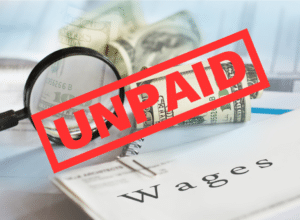On June 22, 2023, Rhode Island Governor Daniel McKee signed legislation increasing the possible criminal penalty for an employer committing wage theft to that of a felony beginning January 1, 2024. The law is H 5902 Substitute A (the “Act”) and can be read here.
By way of background, Rhode Island law imposes both criminal and civil consequences against employers for failing to pay employees their
Under the Act, beginning January 1, 2024, employers that knowingly and willfully deprive employees of their wages in violation of applicable law will be guilty of a felony where the actual value of the wages owed to an employee exceeds $1,500. The employer will face imprisonment for up to three (3) years, a fine up to $5,000, or both. The Act carries broad reach in that it applies to all employers that employ at least one (1) person in Rhode Island, regardless of the employer’s amount of revenue, its physical size, and the amount of physical locations it may have.
The Act specifies further that the new criminal penalties under the Act may be imposed when the following three (3) categories of wages are not properly paid:
1. An employee’s regular wages for work performed, which generally speaking must be paid within nine (9) days of the payroll period for which the wages are computed;
2. An employee’s last and final paycheck, which must be paid on the next regular payday; and
3. Payment of wages owed for work performed by a deceased employee.
Hopefully there will be a decrease in wage theft in light of the Act and its new heightened criminal consequences. However, if you believe that your current or former employer has deprived you of your wages, please don’t hesitate to call any of the attorneys at Sinapi Law Associates, Ltd. for possible legal representation.
Sinapi Law Associates, Ltd. has a proven track record over a period of nearly 40 years of protecting and vindicating the employment law rights of individuals. You can learn more about our employment law practice here. If you believe your employment law rights may have been violated, you can submit a request for a free case evaluation here or give us a call at 401-739-9690.






